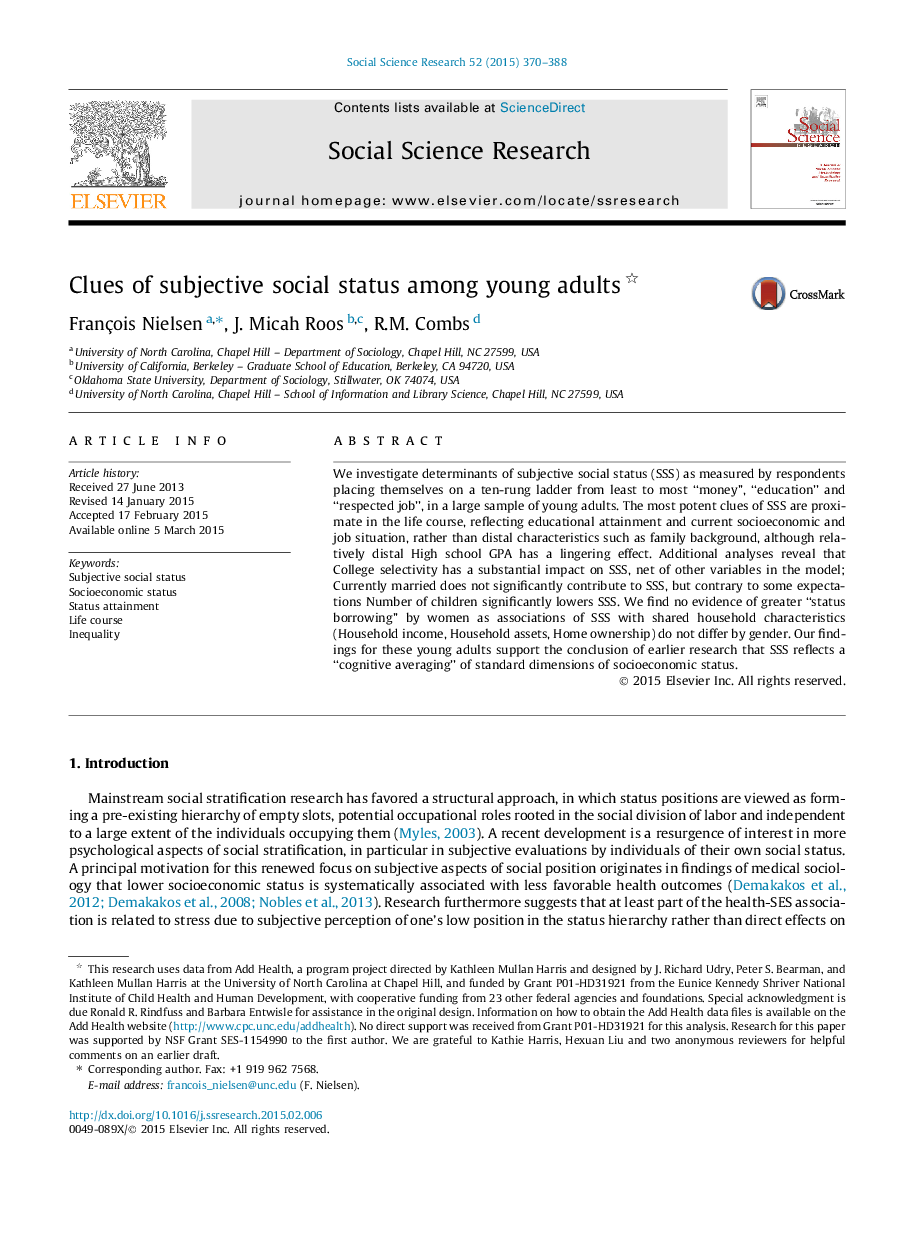| Article ID | Journal | Published Year | Pages | File Type |
|---|---|---|---|---|
| 955706 | Social Science Research | 2015 | 19 Pages |
•The most potent clues of subjective social status are proximate in the life course.•Key predictors include educational attainment, personal earnings and job satisfaction.•Household wealth and income, home ownership and high school GPA also matter.•Attending a more selective college is associated with greater subjective social status.
We investigate determinants of subjective social status (SSS) as measured by respondents placing themselves on a ten-rung ladder from least to most “money”, “education” and “respected job”, in a large sample of young adults. The most potent clues of SSS are proximate in the life course, reflecting educational attainment and current socioeconomic and job situation, rather than distal characteristics such as family background, although relatively distal High school GPA has a lingering effect. Additional analyses reveal that College selectivity has a substantial impact on SSS, net of other variables in the model; Currently married does not significantly contribute to SSS, but contrary to some expectations Number of children significantly lowers SSS. We find no evidence of greater “status borrowing” by women as associations of SSS with shared household characteristics (Household income, Household assets, Home ownership) do not differ by gender. Our findings for these young adults support the conclusion of earlier research that SSS reflects a “cognitive averaging” of standard dimensions of socioeconomic status.
